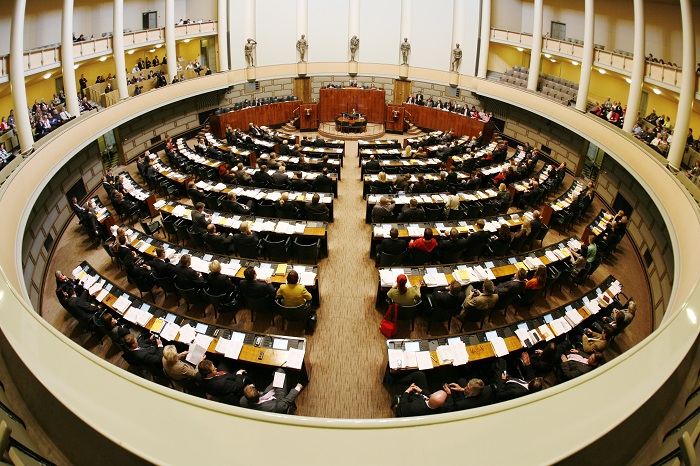Transport Services bill placed in parliament
Published : 25 May 2017, 01:02
Updated : 25 May 2017, 10:19
The government on Wednesday submitted the bill on transport services with the view to bring together legislation on transport markets and create preconditions for digitalisation and new business models in transport. The key aim is to keep provision for customer-oriented transport services, said a government press release.
Most parts of the Act will enter into force on 1 July, 2018. The provisions on the interoperability of data and information systems will enter into force beforehand on 1 January, 2018 and the provisions relating to the introduction of intelligent transport systems linked to the ITS Directive will enter into force on 1 October, 2017.
The Act will bring changes to the current state of the transport market that is strictly regulated and guided by public measures. It will promote fairness of competition in the passenger transport market and competitiveness of the service providers of both passenger and goods transport.
The new Act will create a framework for a more efficient arrangement of publicly subsidised passenger transport by utilising digitalisation, combined transport and different fleet types. The objective set in the Government Programme is to achieve a 10% saving in publicly subsidised passenger transport from 2017.
The Act on Transport Services is part of the Government key projects on deregulation and on building a digital growth environment. The new Act will improve the efficiency of transport services helping to achieve environmental and climate goals.
The Act will significantly enhance the implementation of new technologies, digitalisation and new business concepts. It will enable seamless, multimodal travel chains.
Future transport will rely on the interoperability of information and information systems, as well as the openness of interfaces. An important aspect of the Act is that essential data on transport services can be made open. The Act will also lay down provisions for the interoperability of ticket and payment systems.
The Act will be drafted in three phases. Comments on the second phase of the draft Act may be submitted until 1 June. In the second phase, the conditions for the digitalisation of transport services and for the utilisation of information will be further improved. The second phase will also include a register of transport matters. Further development of the transport system as a service will include all transport modes.
Minister of Transport and Communications Anne Berner is pleased that the first phase of the Act on Transport Services has been completed.
"The Act on Transport Services is, to a very high extent, about preparing for the future. Our legislation has to be flexible so that all parts of the transport system will work together. This Act will give us a genuine opportunity to make mobility a comprehensive service for customers. Finland is a pioneer in this work, which gives us a competitive edge," Berner said.
"It is also very important that the Act on Transport Services will help us respond to the challenges of the climate change. Emission reduction targets for the transport sector are significant and several measures are needed to achieve them. The Act on Transport Services is one of them", the Minister added.


